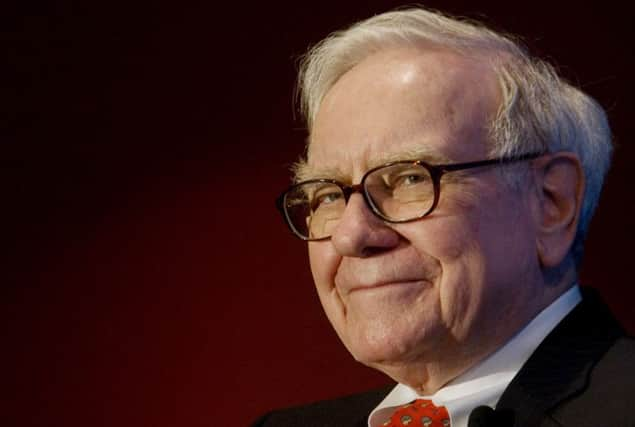Motley Fool: Going for the great unloved can bring happy returns


For proof, look no further than when I decided in November 2013 that butchers’ shop chain Crawshaw looked too expensive at 13p. As I write, the shares are at 63p, and the company’s growth prospects apparently look exciting enough to encourage the UK head of supermarket chain Lidl to jump ship and run the business.
Which isn’t to say – I hasten to add! – that my own portfolio doesn’t have its share of companies exhibiting a decent rate of growth, even though I primarily invest for income.
Recovery stocks
Advertisement
Hide AdAdvertisement
Hide AdCompass Group, for instance, is up 95 per cent in four years. GKN, up 146 per cent over roughly the same period. And pasty shop chain Greggs, up 185 per cent in just over two years.
All decent returns, I think, and all fairly predictable at the time of purchase. Although, I hasten to add, I have been surprised at the actual extent of Greggs’ stellar rise.
Why ‘predictable’? Because the approach I take to looking for growth shares is largely one of looking for shares with recovery potential.
Put another way, while I’m rubbish at spotting businesses like Crawshaw’s, I reckon I’m much better at spotting unloved, out-of-favour businesses that have temporarily been hit by headwinds that can be overcome with time.
Contrarian picks
Advertisement
Hide AdAdvertisement
Hide AdAs a strategy for finding growth shares, this is one with some fairly weighty factual evidence on its side.
Well-known contrarian investor David Dreman, for instance, has conducted a number of in-depth studies into the long-term performance of various investment strategies.
And again and again, a strategy of buying those unloved, out-of-favour businesses – and holding them until they recover – delivers startling outperformance.
Put another way, load up on shares with price-to-earnings (P/E) ratios at below the market average, hold until they reach market average – and then sell to buy another unloved, out-of-favour business.
Growth + Yield: win both ways
Advertisement
Hide AdAdvertisement
Hide AdOf course, you don’t have to sell. I don’t. I like to buy unloved, out-of-favour businesses with a decent dividend yield, and simply hold them as income stocks.
And, let’s face it, when a business is hit by adverse headwinds, a low P/E and a high yield often go hand in hand.
Nor do you have to look too far to see investors who’ve profited from this ‘buy cheap, hold for the long term’ strategy.
Warren Buffett’s fabled purchase of Coca-Cola in the late 1980s, for instance, falls into exactly this category.
347% vs. 42%: take your pick
Advertisement
Hide AdAdvertisement
Hide AdOr, for a UK example, take Neil Woodford, who is now heading his own investment firm, of course.
As I’ve written before, in the 15 years to December 31 2011, he delivered a 347 per cent return, versus the FTSE AllShare’s distinctly more modest 42 per cent.
And underpinning Mr Woodford’s performance were a series of choice picks of – yes – those unloved, out-of-favour businesses, bought when others couldn’t get out of them fast enough.
Behemoths British American Tobacco and Imperial Tobacco, for instance, bought back in the late 1990s and early 2000s, when the market was convinced that massive tobacco lawsuits lay around the corner.
Advertisement
Hide AdAdvertisement
Hide AdOr GlaxoSmithKline and AstraZeneca, bought when the market was convinced that both businesses had run out of patentable drug discoveries.
As Mr Woodford himself told the Daily Telegraph not so long ago: “The investment industry is full of pseudoscientific mumbo jumbo, which confuses investors.
But what I do is actually quite simple and can be communicated simply: my job is to look for anomalies in the values put on companies by the stock mar- ket.
Some companies are undervalued by the market, some are overvalued. A fund manager’s job is to find the former, and avoid the latter.”
Ignore the naysayers
Advertisement
Hide AdAdvertisement
Hide AdAll of which sounds quite simple and straightforward. Except that it isn’t.
Because going against the crowd – which is what contrarian investors do – is never comfortable. Simply put, you’re buying shares that everyone else is selling.
Moreover, just because a share is cheap, doesn’t mean that it won’t get cheaper still. So be prepared to stick to your guns and sit it out. Possibly for a lot longer than you’d expected.
And yet, the rewards are there.
As I said at the beginning: I’m rubbish at picking hot-shot growth stocks.
Advertisement
Hide AdAdvertisement
Hide AdBut I like to think that I’m rather better at waiting for a generally well-managed business to recover from some temporary headwinds.
To find out the strategies to adopt if you want to become one of the growing number of surprise UK millionaires, read this free Motley Fool report: 7 Simple Steps For Seeking Serious Wealth while it remains available!
THE Motley Fool provides investment research and commentary at Fool.co.uk
The company’s name was taken from Shakespeare, whose wise fools both instructed and amused, and could speak the truth to the king without getting their heads chopped off! The Fool has spent decades championing shareholder values and advocates tirelessly for the individual investor.
You can look forward to our fortnightly column every other Saturday here at The Yorkshire Post, or visit Fool.co.uk